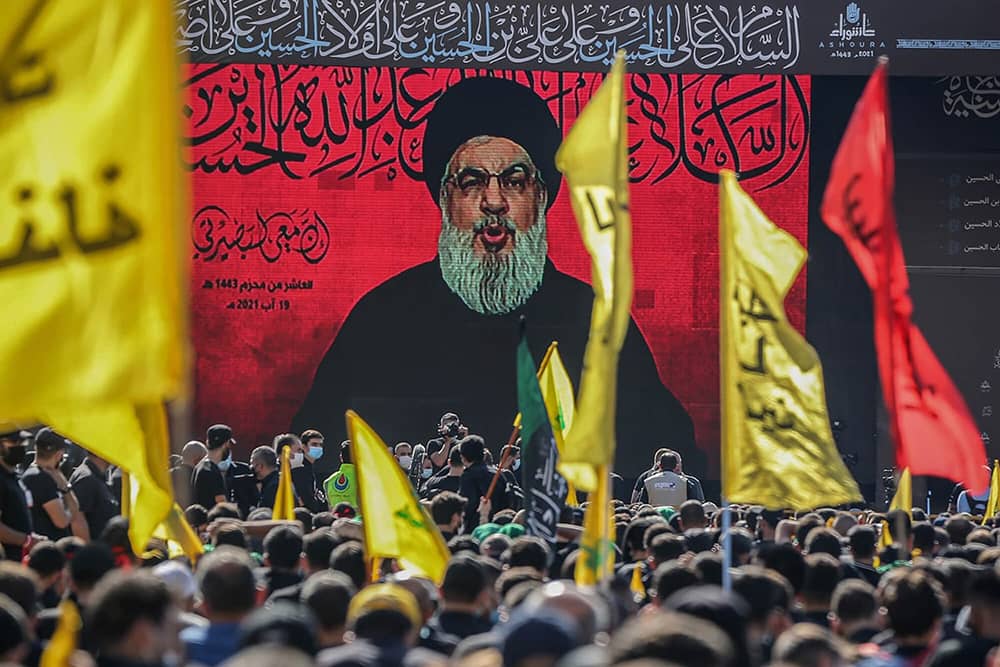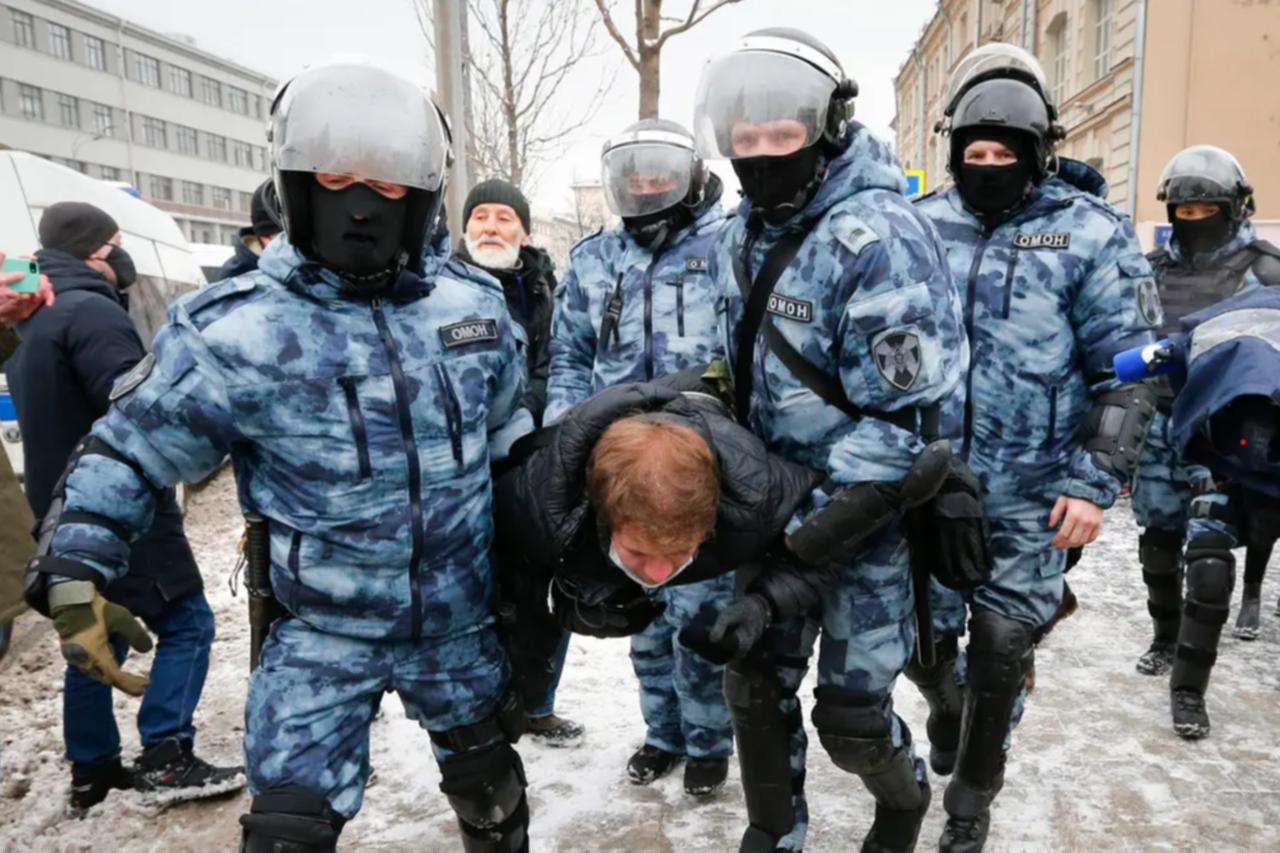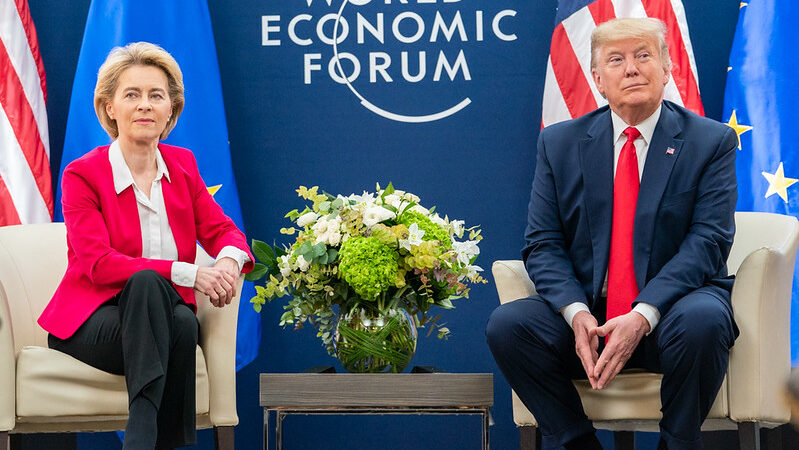
People no longer fall prey to the false claims made by Hezbollah chief Hassan Nasrallah and his party. Organised crime cannot be equated with resistance.
By Alia Mansour
Hassan Nasrallah, the Secretary-General of Hezbollah, has demonstrated a penchant for distorting and manipulating facts to suit his agenda. He employs tactics reminiscent of the Goebbels theory, although even his audience knows that not everything he says can be believed, albeit some elements may hold some truth.
In a recent speech commemorating the death anniversary of Mustafa Badr al-Din, the leader of Hezbollah's militia in Syria, Nasrallah responded to what he perceived as "lies, injustice, betrayal, and ethical violations."
He referred to the party's alleged association with drug dealer Marai al-Ramthan — who was reportedly targeted in an air strike conducted by Jordan in Syria a few days ago. The strike resulted in the death of al-Ramthan, and his family and the destruction of a Captagon production lab.
Nasrallah asked: "If not for Hezbollah, would the Lebanese state have been able to dismantle Captagon labs and drug smuggling networks in multiple regions?"
Weaponry used for illicit purposes
He added: "We will not permit the honourable weaponry of the resistance to be tainted by the scourge of drugs. This represents our principles and position."
It is worth recalling that Nasrallah coined the phrase "carrying arms to protect the resistance arms."
When he speaks of the honourable weaponry of the resistance, he is essentially referring to the arsenal of his party, which invaded Beirut and Mount Lebanon in 2008 and was implicated in the assassination of prominent national figures, notably Lebanese Prime Minister Rafik Hariri, as determined by the International Tribunal for Lebanon.
Hezbollah also played a role in the assassinations of Minister Muhammad Chatah and Brigadier General Wissam al-Hassan. This same weaponry has been responsible for the deaths of thousands of Syrians and the brutal sieges that have led to starvation in their cities and villages.
This weaponry has an extensive record of criminal activities within and beyond Lebanese borders — from Kuwait to Saudi Arabia, Syria, and other regions.
However, for the present discussion, let us focus on Hezbollah's purported innocence about the manufacturing and trafficking of drugs, particularly Captagon.
Hezbollah's involvement in drug trafficking can be traced back over three decades. The US Drug Enforcement Administration, operating within the Counterterrorism Operations Center under the jurisdiction of the Department of Justice, has been monitoring Hezbollah's drug trafficking and money laundering activities, which have allegedly financed terrorist operations for over 30 years.
Project Cassandra
One notable incident involved the interception of a massive cocaine shipment — estimated to be several tons, carried out by Hezbollah's associates in collaboration with the Colombian drug cartel La Oficina de Envgado.
Project Cassandra — a scandal that came to light a few years ago — exposed Hezbollah’s involvement in drug trafficking and money laundering. This operation led to the arrest of members of a Hezbollah network engaged in smuggling and trafficking drugs worth millions of dollars.
The proceeds from these activities were reportedly meant to fund terrorist operations in Lebanon and Syria. The process involved cooperating with security services from seven countries, including France, Belgium, Germany, and Italy.
Arab countries targeted
Recent reports suggest that as Arab countries have increasingly become targets for Hezbollah's drug trafficking, explicitly involving Captagon, there are indications of some Captagon labs being relocated from Syria to Lebanon.
Initially, the drug manufacturing industry focused on Lebanese territories, particularly along the Lebanon-Syria border. However, the manufacturing process shifted to Syria due to Hezbollah and Iranian militias gaining control over large parts of Syria and the intensified law enforcement raids in Lebanon.
A portion of the production was then smuggled into Lebanon through illicit border crossings, with the Qalamoun crossing being particularly noteworthy, before being distributed to other countries. It should be noted that Hezbollah and its affiliated entities exert control over these illegal crossings.
Most Captagon shipments were smuggled from Syria to Jordan and Gulf countries using trucks designated for export. Several smuggling attempts from Lebanon to the Gulf countries were foiled, resulting in negative consequences for Lebanon.
Two years ago, Saudi Arabia announced the interception of a smuggling attempt involving 2,466,000 narcotic pills concealed within a shipment of pomegranates from Lebanon. As a result, Saudi Arabia decided to ban Lebanese vegetables and fruits from entering its territory or being transited through it.
Despite the significant losses Lebanon and its people suffered, Hezbollah has continued manufacturing and smuggling Captagon pills. Some reports indicate that farmers collaborating with Hezbollah have expanded their carob cultivation, which is used to wrap the Captagon pills.
Ironically, the Captagon production labs in Syria are widely known, from Deir ez-Zor to Al-Qusayr and other areas. The individuals responsible for running these labs and the processes involved in equipment acquisition, raw materials, and manufacturing are also well-known.
Even those loyal to Iran and the Syrian regime know and discuss these matters.
The smuggling routes along the borders of Iraq, Jordan, Lebanon, and Turkey are also well-documented. Although stopping the production and smuggling of Captagon has become a prime concern for many affected countries, those who profit billions of dollars from this illicit trade are unlikely to abandon it.
They may alter their tactics concerning smuggling routes and destinations and even sacrifice some smugglers and traffickers. While these individuals may be necessary, they are ultimately replaceable in the trade.
It is important to note that Mustafa Badr al-Din, whom Hassan Nasrallah eulogised in his speech, was involved in carrying out attacks against the embassies of the United States and France and the airport in Kuwait.
He was arrested in 1983 and sentenced to death in 1984. Al-Din remained imprisoned until 1990, when he escaped during Iraq's invasion of Kuwait.
Subsequently, he was involved in several assassinations targeting political and security leaders in Lebanon, including Prime Minister Rafik Hariri. Therefore, it is unsurprising that individuals who consider al-Din a fighter deserving of commemoration and martyrdom are involved in the Captagon trade.
People are no longer falling prey to the false claims made by Nasrallah and his party. Organised crime cannot be equated with resistance, and the Shiites - except a few who participate in these crimes - bear the brunt of these actions.
Alia Mansour is a Lebanese-Syrian journalist, author and political activist. She is a former Syrian Coalition political committee member, an exiled Syrian opposition group. She is an American University of Beirut (Political Science) alumna. She resides in Beirut and regularly contributes to Al Majalla and various other Arab newspapers & websites.
This article first appeared in Al Majalla.





